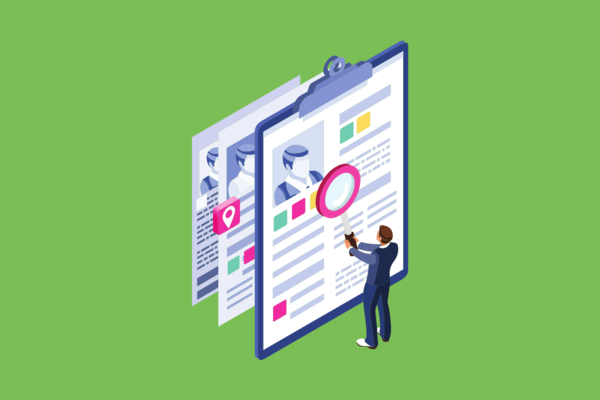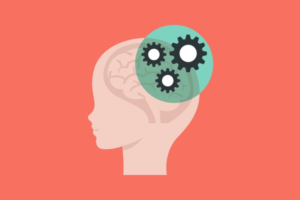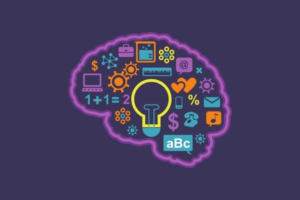A productive and talented workforce is the backbone of any organisation, though hiring and maintaining the right talent can be a rigorous and stressful process. Recruitment is complex in every organisation because it comes down to sorting through thousands of applicants potentially to find the perfect competency and personality to fit into your workplace culture.
There are a variety of HR tools available to help recruiters make informed decisions and choose quality candidates. These can be based on quantifiable data and concrete criteria collected through a streamlined and analytical process. These tools can be application tracking systems, artificial intelligence, candidate relationship management, and many more.
Choosing the right HR tools for recruitment can be a challenge for even the most experienced HR professionals. Let’s take a look at why the recruitment process is integral to business in the current climate and the tools currently available to take the stress out of your recruitment process.
The Importance of Employee Recruitment
Selecting and empowering the right people for the right positions is the ultimate goal of any organisational manager or HR team. If the recruitment process is done properly, then you’re more likely to find the best talent for each position and save time and money down the road.
By establishing the need for a position, drafting a specific job description, doing market research for competitive compensation and benefits, and advertising in the right places, recruiters are completing the essential tasks to attract talented and quality candidates. Using a set of streamlined and systematic questions and skills tests for every candidate will help to objectively choose the best candidate using data, as opposed to subjective characteristics that may create more variability and uncertainty.
The Difference Between Recruiting for a Small Business vs a Large Organisation
Depending on whether you’re recruiting in a large firm or a small one, you may have different processes and resources available to you. A large organisation is likely to have a lot more resources and personnel on hand to execute recruitment efficiently. On the other hand, small businesses have fewer resources and may need to outsource some of the process.
Larger organisations are likely to be well known by candidates and, depending on their reputation, roles with these organisations may be sought after and desired. Smaller companies may have to work harder to generate awareness and make their roles more desirable through various methods. Small organisations will need to include more information about their culture and values when advertising for roles to attract the right kind of people for the job.
Whether you’re a large or small organisation the addition of HR recruitment tools to your hiring process is likely to be an invaluable asset. Among the various tools available, each will enable HR recruiters to identify attributes that will empower potential employees to excel in their role.
The Best Recruitment Tools in the Market Today
There are myriad recruitment tools in the market today, each with their own advantages and specific function in the recruitment process. There are four main phases of recruitment:
- Generating interest
- Screening candidates
- Conducting interviews
- Hiring employees
Taking advantage of the appropriate tools during each of these recruitment phases will help you streamline and automate the hiring process.
Testing and Assessment
As one of the most important tools available to HR professionals, tests and assessments help to assess a candidate’s ability during the hiring process and can test an array of different attributes such as specific skills, aptitude, personality, and behavioural characteristics.
HR Profiling Solutions Aptitude Tests are one of the most effective tools for predicting job performance and are commonly used by HR Professionals for selection purposes. An employment aptitude test measures a person’s cognitive ability, including how they think, reason, and solve problems. These tests evaluate how well a person applies reasoning skills to reading comprehension, working with numbers, finding solutions to problems, abstract thinking, and the ability to learn and use new information.
Similarly, Psychometric Assessments are useful in understanding a person’s behavioural style, the innate skills that they possess, and their capacity to focus on specific tasks. It is a standardised test designed by psychologists to measure a person’s mental performance and identify their personality type to determine their behaviours and potential.
Cognitive Ability Tests evaluate a person’s current capability level and their ability to learn, solve problems, and process information on the job. These tests, also known as a reasoning analysis, aptitude test, or intelligence test, remove unconscious bias from the selection process and support organisations to make reliable hiring decisions.
Other tools, whether application forms, assessments, software, or outsourcing personnel, assist with the flow of the hiring procedure and optimise recruitment productivity:
Other Recruitment Tools
Job Aggregators – a consolidated job board to advertise jobs across the spectrum. Having a wide range of jobs and candidates in one place can streamline finding suitable candidates in different fields and get your job listing seen by the right people.
AI and Automation – These tools can help to streamline data input across multiple databases, analyse information, and even screen and select candidates automatically before a recruiter has spoken with them.
Application tracking system – a software application that enables the electronic handling of applicant information, usually in a database. Sifting through and selecting the relevant skills and experience from large numbers of applicants to help narrow down the prospective candidates.
Recruitment CRM – Candidate Relationship Management helps to establish and maintain relationships with a large pool of candidates and assist in streamlining the entire recruitment process.
Video Interviewing – besides the free video chat tools available, purpose-built video interviewing technologies analyse things like facial expressions, diction, and voice tonality to aid the hiring process, increase recruiter effectiveness, and engage with candidates.
Why Pre-employment Assessments are Important
Candidate screening is one of the most important tasks as a recruiter. Choosing who to bring forward for the next round of interviewing, with the chance of them being hired into a permanent role, shouldn’t be based on inadequate information. Pre-employment assessments help to bridge the information gap and allows recruiters to make decisions based on tangible evidence. These tools strengthen the recruitment process by screening candidates more effectively. Ultimately, hiring the best candidate for the role among available applicants saves time and money on future recruitment.
HR Profiling Solutions pre-employment tests can assess candidates in terms of cognitive ability, emotional intelligence, skills, personality, honesty and integrity, and physical ability, among other aspects. When choosing your pre-employment assessments, make sure that they’re legal, well-developed, scientifically proven, and job-related. With the right assessments, you can make decisions based on concrete criteria and successfully predict employee performance across a wide range of job categories.




